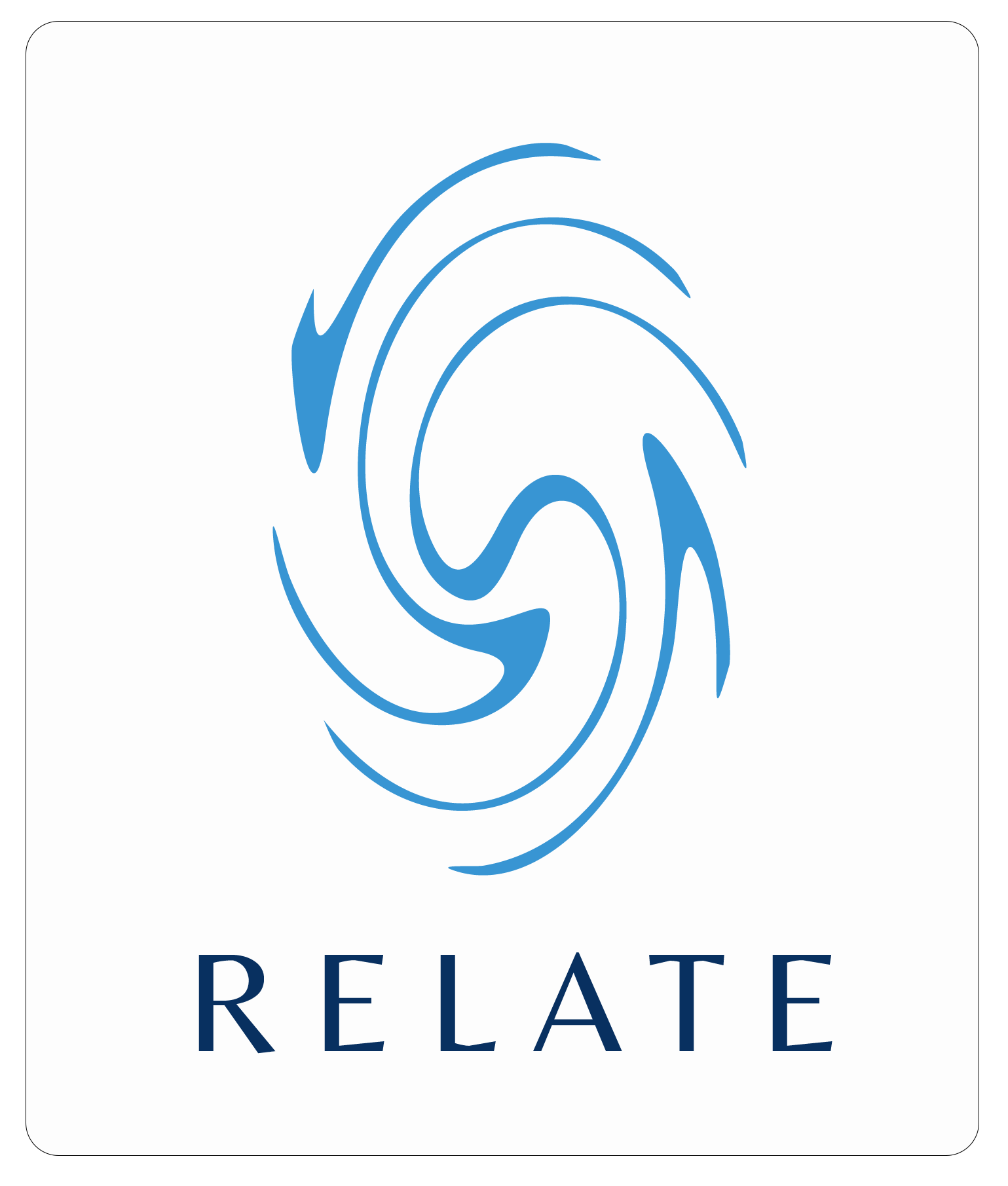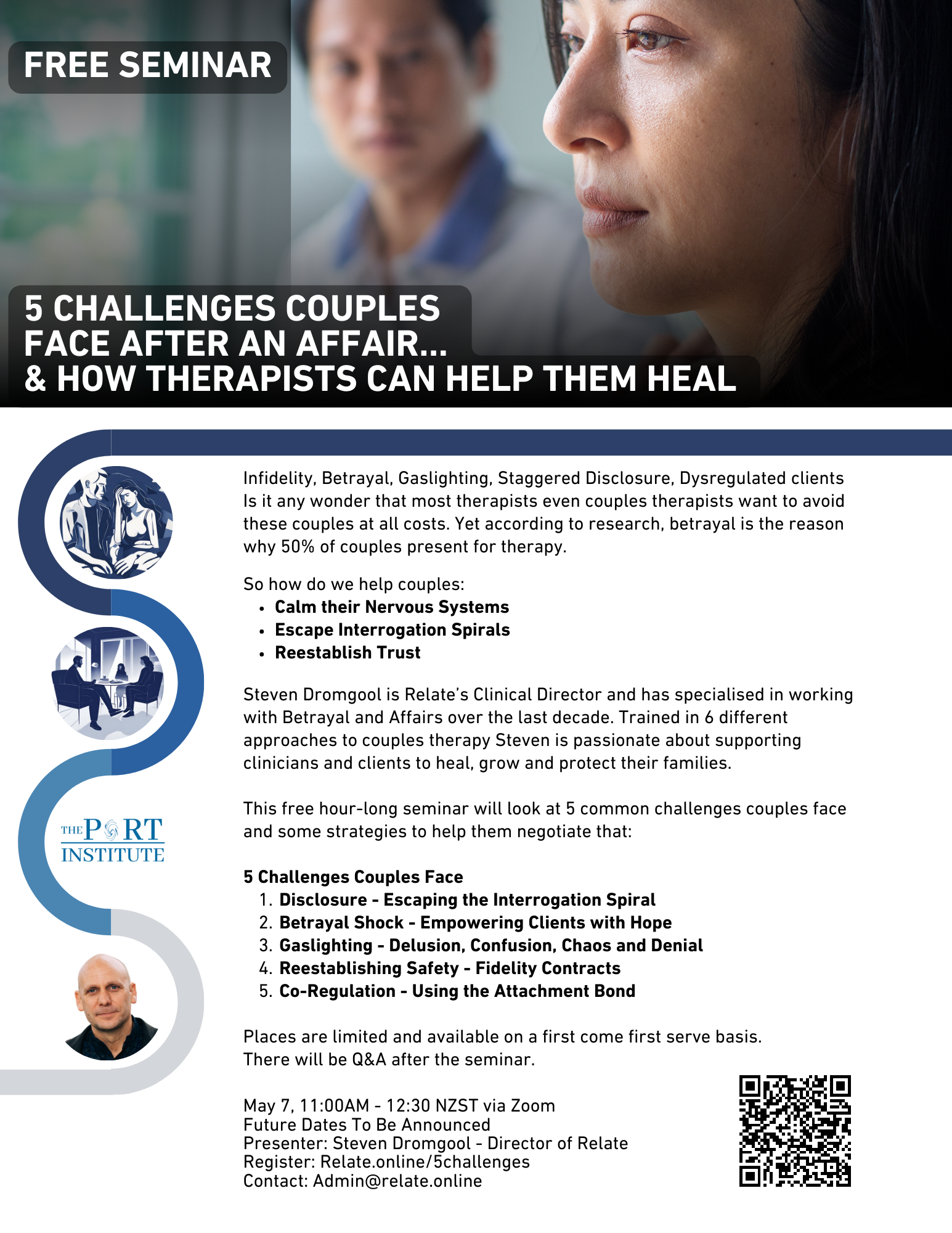
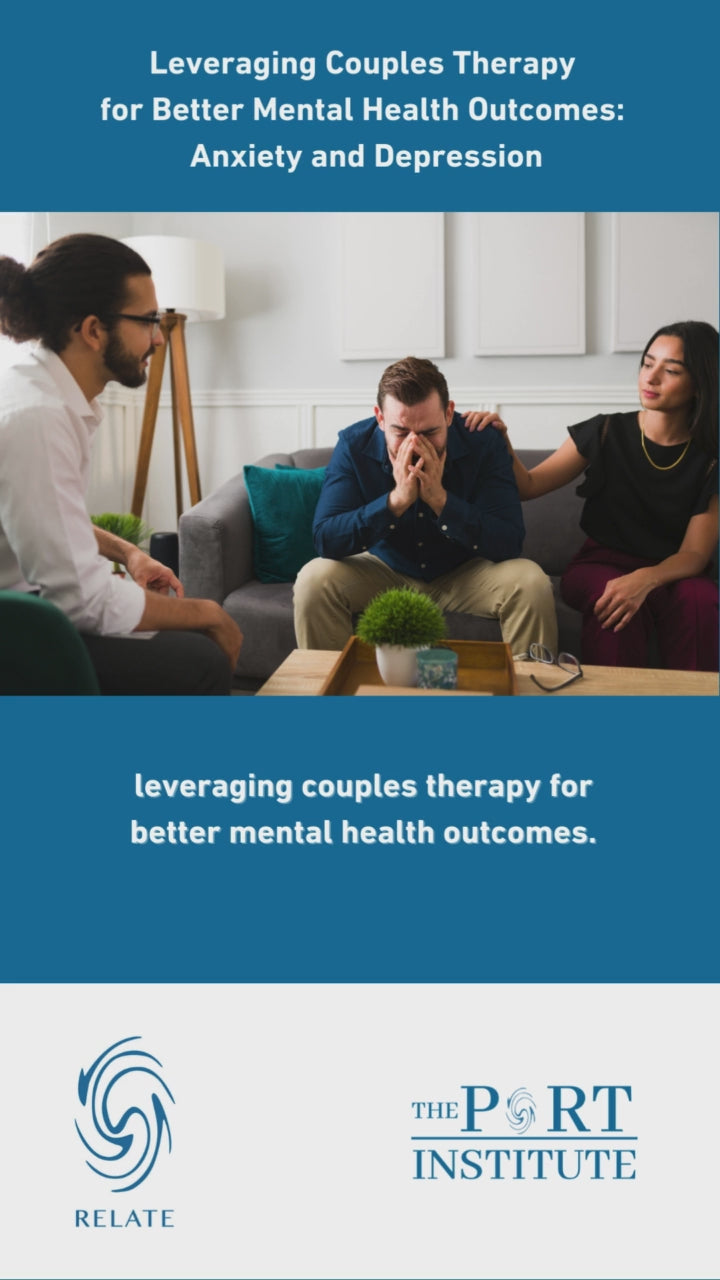
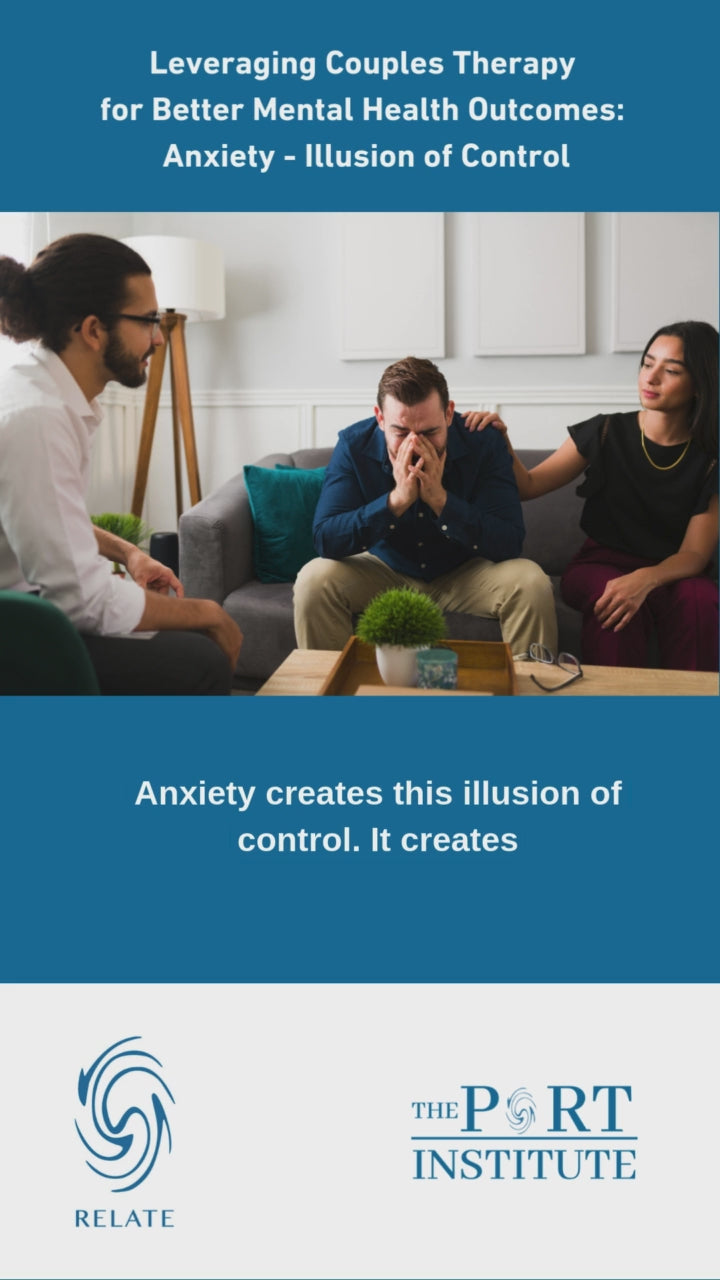
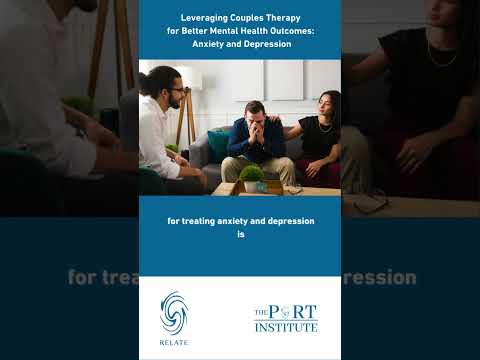
Leveraging Couples Counselling for Better Mental Health Outcomes
Relationships: The Key to Unlocking Better Mental Health Outcomes
When we think about managing anxiety and depression, our minds often jump to medication as the solution. But what if a stronger approach lies in healing our relationships? A recent training led by Steve Dromgool, Clinical Director, made a compelling case for prioritizing couples therapy as a pathway to improved mental health outcomes.
The training shed light on the importance of understanding anxiety and depression through developmental and psychophysiological lenses. We discovered how our vagal tone plays a crucial role in regulating our autonomic nervous systems. But perhaps the most eye-opening aspect was the undeniable link between relationship quality and mental health, backed by studies revealing powerful correlations between marital quality and anxiety levels.
The conversation underscored the significance of attachment styles, co-regulation in partnerships, and the wise self's role in integrating our emotional and physical responses. It left us wondering: could therapies focusing on these elements hold the key to transformative change? In this blog series, we'll delve into the insights from the training, exploring how relationship-centered approaches can lead to a more holistic understanding of mental health.
The PORT Institute teaches Couples Therapy
The training begins with an introduction to the power of couples therapy in improving mental health outcomes, particularly for those struggling with anxiety and depression. The Port Institute is unique space dedicated to presence-oriented relationship therapy training. The Institute's mission is to make evidence-based practices accessible to all, providing the tools needed to transform therapeutic approaches.
Course learning objectives: To develop understanding anxiety and depression not just as isolated conditions, but through the lenses of developmental and psychophysiological factors which are strongly affected by Couples Therapy.
Defining Anxiety and Depression
To understand how to address anxiety and depression, we first need to define these conditions. Anxiety was described as excessive worry and apprehensive expectations about the future, with specific symptoms required for an official DSM-5 diagnosis. It's a common issue, affecting a staggering 25% of clients. Depression, on the other hand, is characterized by low mood, loss of interest in activities, and various physical and emotional symptoms. Importantly, relationship problems were highlighted as a potential root cause of depressive symptoms. So, how do we treat these prevalent conditions? The gold standard approaches were discussed, including medication and psychotherapy.
Research on Anxiety and Depression in Relationships
The connection between anxiety, depression, and relationship distress is backed by compelling research. Findings reveal strong correlations between anxiety disorders and relationship distress, including how marital quality can impact the onset of anxiety. The consequences of depression, such as emotional contagion and the powerful influence of social support. This sheds light on how physical contact can promote oxytocin release and emotional wellbeing. One fascinating study by John Gottman highlighted how connection with a loved one can calm the brain. Vagal tone, our body's internal monitor, has a crucial role in regulating our autonomic nervous system. The ventral, sympathetic, and dorsal states, set the stage for a deeper exploration of how relationship quality influences mental health.
Vagal Tone and it’s Impact on Mental Health
Understanding vagal tone and its impact on our mental health can be transformative for our clients. High vagal tone, or ventral vagal state, is associated with feelings of calm, connection, and effective stress management. On the other hand, activation of the sympathetic nervous system triggers a fight-or-flight response, leading to anxiety, fear, and hyperarousal. A low vagal tone, or dorsal vagal state, results in feelings of disconnection, numbness, and withdrawal. The contention that anxiety corresponds to a sympathetic state and depression to a dorsal state is discussed, offering valuable insights for practical applications in therapy.
Attachment Style Effects on Anxiety and Depression
Attachment styles play a profound role in shaping relationships. The fight-or-flight response is closely tied to an anxious attachment style, while the dorsal state is linked to a disorganized attachment style. Importantly, disorganized attachment can involve oscillating between both sympathetic and dorsal states, often triggered by high-stress environments. Emotional contagion is a powerful concept and it has effects on relationship dynamics, emphasizing the importance of attunement and regulation in fostering healthier connections.
The Importance of Relationship Therapy to Mental Health
As we've explored, relationship therapy holds immense potential for integrating body sensations and emotional stories through the lens of the wise self. The concept of co-regulation underscores the critical role of physical touch and connection in stabilizing the nervous system. When a supportive partner provides validation and engagement, they become an integral part of the therapeutic journey.
The ability to mentalize a partner's perspective is key. The nature of individual therapy makes understanding the partner’s perspective very difficult, if not impossible for the individual therapist. Obviously this is not a problem in couples therapy. The relational paradigm significantly influences treatment outcomes, highlighting the power of relationship-centered approaches in fostering long term mental well-being for clients.
Register to learn how to use Couples Therapy to help your clients
Our training, 'Leveraging Couples Counseling for Better Mental Health Results,' equip you with neurodevelopmental and attachment insights you need to integrate relationship-centered approaches into your practice. This is part of Relate’s School of Love: Professional Edition. Register for instant access.
Do you want to save money on Leveraging Couples Counselling for Better Mental Health Outcomes? $25 USD per month, 3 Day free trial
Get access to this course and more than a dozen others:
2. Click here to access course (and the 30+ other courses in the School of Love: Professional Edition)
Once you register for School of Love: Professional Edition, an email will be immediately sent to you with login information. Learn More: Digital Course Delivery Policy

This product has no reviews yet.
